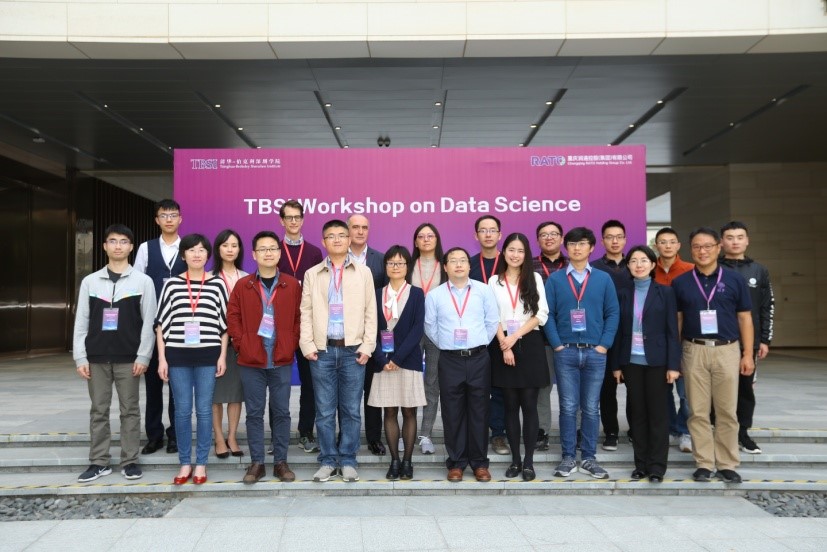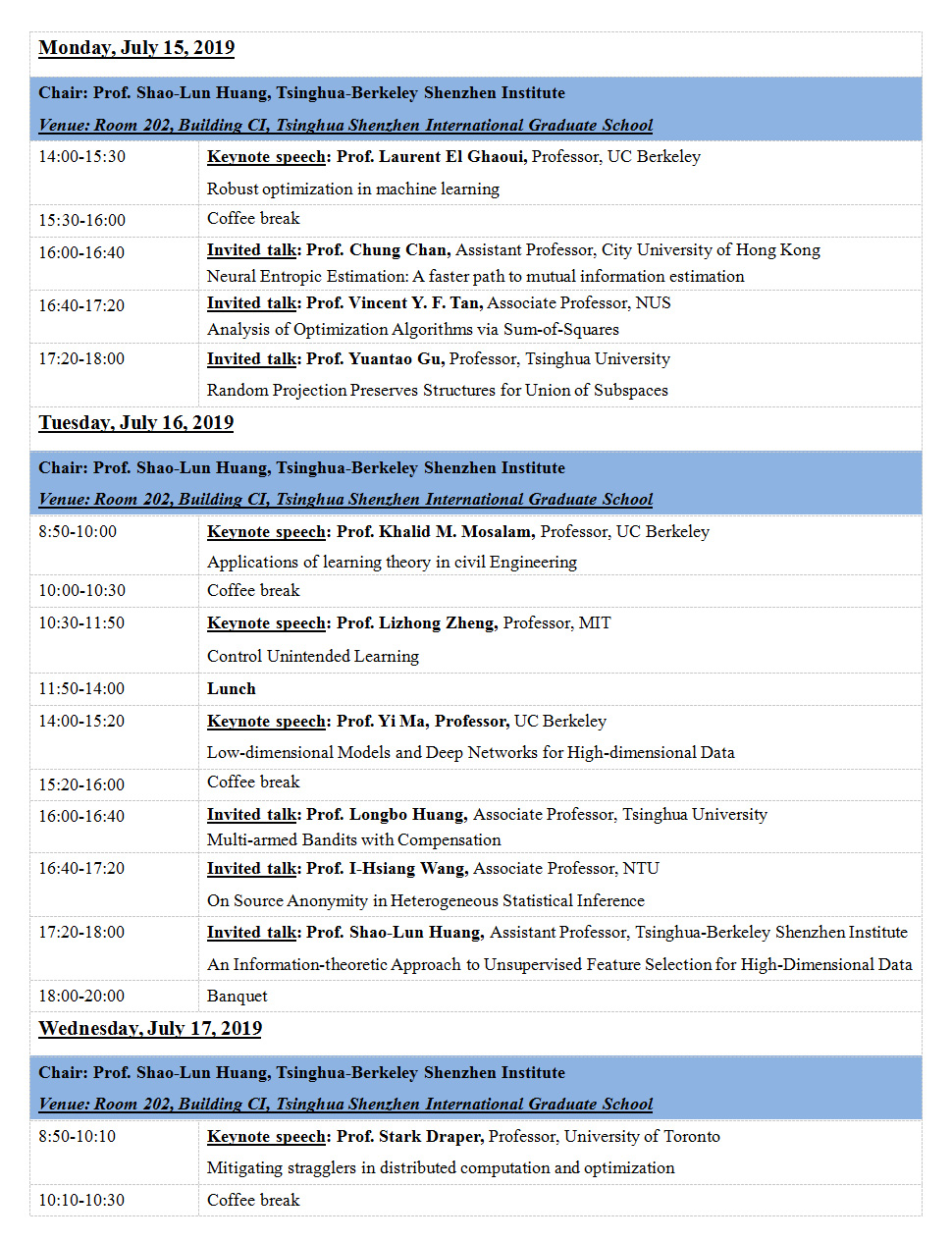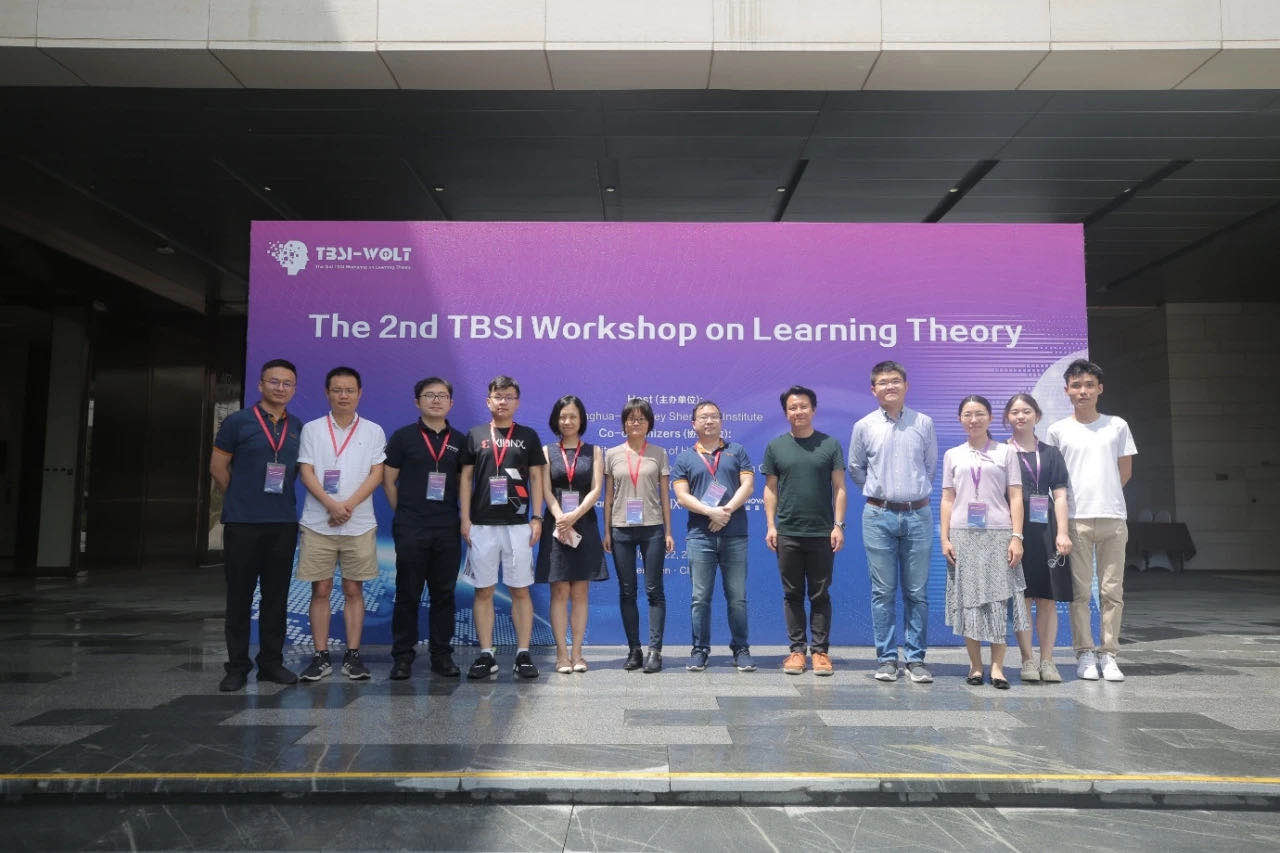The second annual TBSI Workshop on Learning Theory was held successfully at Shenzhen Institute for Talents Development during July 20-22, 2020. This three-day workshop drew more than 67 local attendees and 63 remote attendees worldwide and brought together 24 academic and industry leaders to share their vision and insight about future research in machine learning. Eight keynote speeches were delivered by renounced researchers from University of California at Berkeley, University of Maryland, Princeton University, University of Texas at Austin, Carnegie Mellon University, Georgia Institute of Technology, City University of Hong Kong, Shenzhen University.
News

Tsinghua-Berkeley Shenzhen Institute (TBSI) launched its inaugural Workshop on Data Science (TBSI-WODS) at Shenzhen Institute for Talents Development from December 17 to 19. The 3-day workshop featured keynote speeches, invited talks, discussions and competitions on the theme of data science theories and applications, bringing in renowned researchers from universities such as Princeton, Yale, University of California at Berkeley, University of California at San Diego, University of Texas at Austin, University of Toronto, Carnegie Mellon University, and Georgia Institute of Technology.

The goal of TBSI-WOLT is to bring together the world’s leading researchers in information theory, computer science, and related fields, as well as the next generation of outstanding young scholars, to explore deep unsolved problems about the learning theory. TBSI-WOLT aims to provide a relaxed and enthusiastic discussion environment for cutting edge research problems, in which the multi-discipline collaborations are also encouraged.

The Tsinghua-Berkeley Shenzhen Institute (TBSI) 2019 Retreat Conference will be held in Tsinghua Shenzhen International Graduate School, University Town, Shenzhen, July 15-17. This Conference will facilitate in-depth technical discussions and networking opportunities between TBSI faculty, students, invited world-class experts and registered attendees. It features 2 plenary sessions and 7 parallel workshops featuring advanced research themes, which are all open to the external participants, including material science, environmental science, transportation systems, learning theory, 3D optical imaging, data science and precision medicine.
